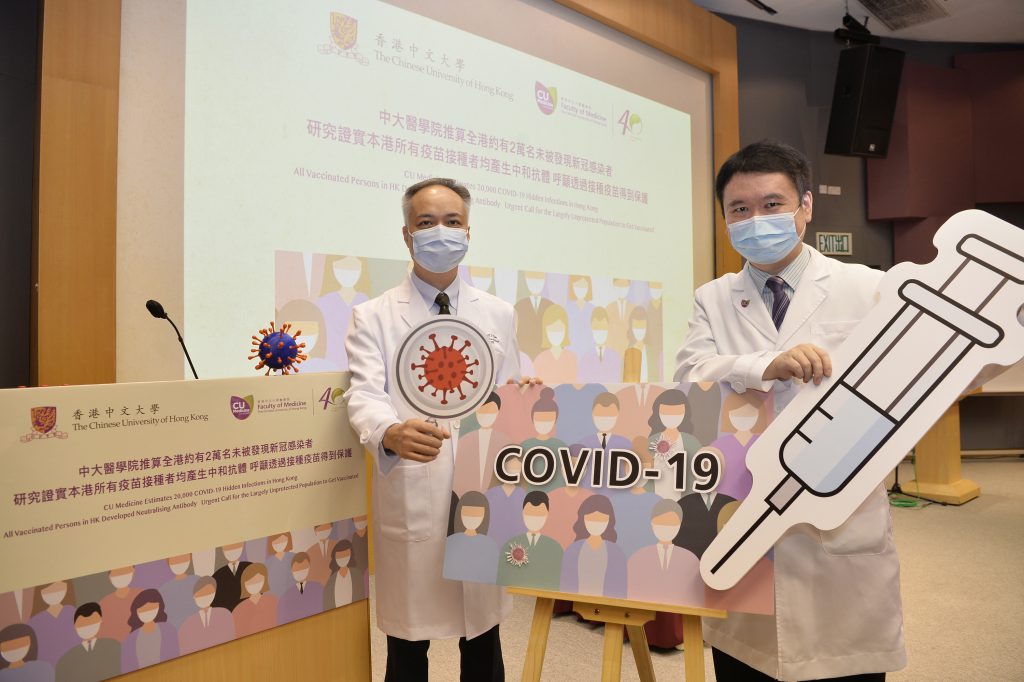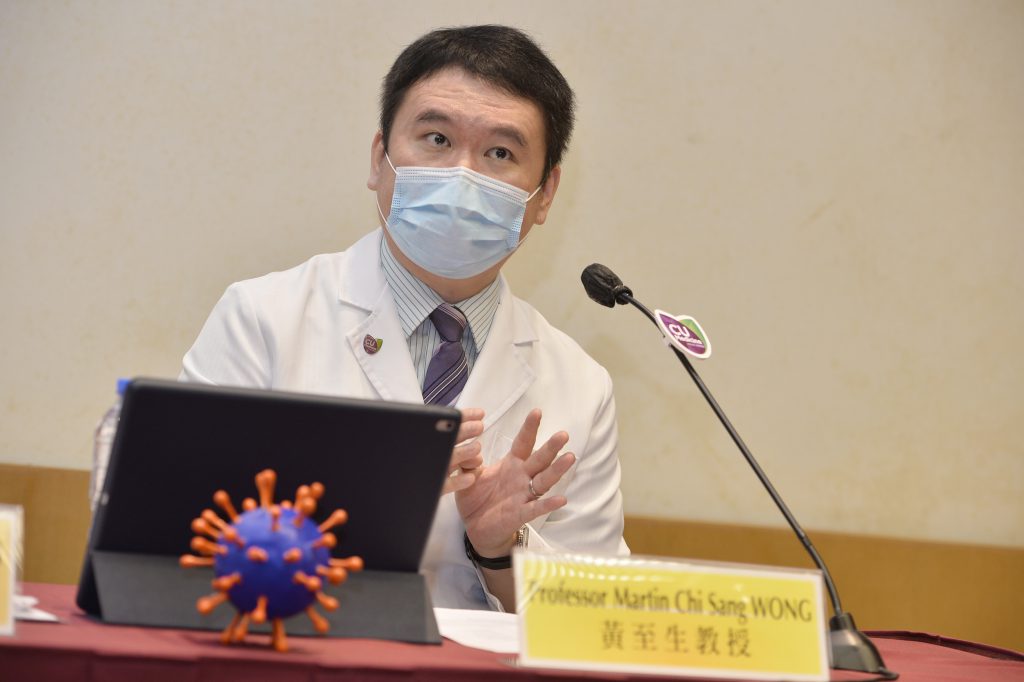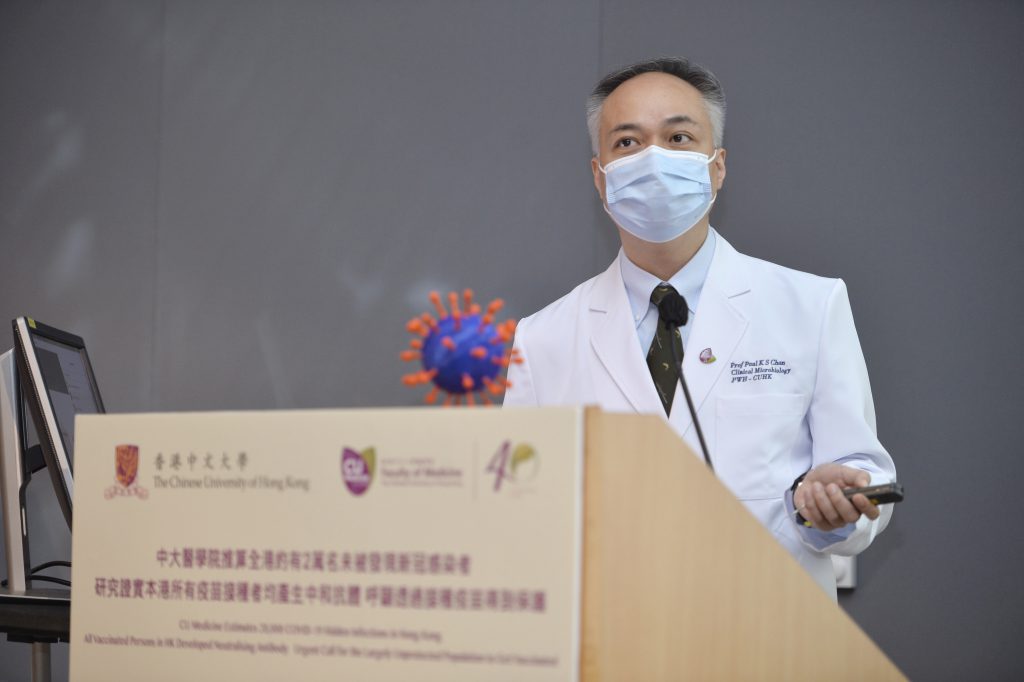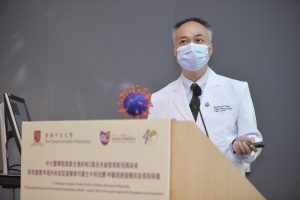CUHK
News Centre
CU Medicine Estimates 20,000 COVID-19 Hidden Infections in Hong Kong
All Vaccinated Persons in HK Developed Neutralising Antibody After Two Doses
Urgent Call for the Largely Unprotected Population to Get Vaccinated
A COVID-19 hidden infection study conducted by the Faculty of Medicine at The Chinese University of Hong Kong (CU Medicine) has estimated that about 20,000 people at most in Hong Kong were infected with the virus but unidentified. Adding in 10,000-plus confirmed cases, the research team summed up that over 99% of the population will have to rely on vaccination to establish protection against COVID-19 infection.
Another study, which investigated the two COVID-19 vaccines available in the territory confirmed all participants who had received two doses of vaccines, regardless of the brand, successfully developed neutralising antibody, meaning the vaccines are effective to provide protection. Under the threat of the continuous outbreak in areas neighboring Hong Kong, and the emergence of new strains, researchers are urging people in Hong Kong to get vaccinated as early as they can to lower the risk of infection and spread of the virus.
Roughly 20,000 people infected with COVID-19 were unidentified
The CU Medicine team launched the COVID-19 hidden infection study in April 2020 with serology test to detect any unidentified cases. The results shall provide a clearer picture on the overall infections and their epidemiological features which will help evaluate and enhance infection control measures.
Researchers recruited 4,198 individuals aged 18 or above between 21 April 2020 and 18 April 2021 in the study. Participants provided blood samples for a serology test and completed a questionnaire. The serology test was to detect if participants have Immunoglobulin G (IgG) antibody which is a sign of previous infection. Results showed that six participants were found to have the IgG antibody, which counted for 0.14% of the total. After statistical adjustment, the research team estimates there were around 20,000 hidden COVID-19 cases in the city, which is about 0.3% of the total population.
Professor Paul Kay Sheung CHAN, Chairman of the Department of Microbiology at CU Medicine said, “Study results showed the ratio of confirmed and hidden COVID-19 cases is approximately 1:2 which is a very low proportion compared to overseas data. Geneva in Switzerland for example has a ratio of 1:11.6. This proved Hong Kong’s containment and contact tracing strategy is effective and prevented the spread of virus in community. However, the low infected population and low vaccinated population meaning that a very large sum of the population is remained susceptible to COVID-19 infection. Given the uncertain development of the epidemic in neighboring areas of Hong Kong, and the emerging new strains, we are calling on citizens to get vaccinated as early as they can to lower the risk of infection and spread of the virus.”
Professor Martin Chi Sang WONG, Professor of the Jockey Club School of Public Health and Primary Care at CU Medicine said, “COVID-19 infection may not carry any symptom. Hidden infections make it difficult for the authority to estimate the actual infected population. Our study result shall provide them with some insights into the measures to be taken in the future. Many countries and cities around the world have carried out serology test to assess the proportion of COVID-19 IgG carriers for a clearer picture of the epidemic.”
100% of people have neutralizing antibodies after two doses of vaccines
Another CU Medicine study showed all (100%) participants developed neutralising antibodies after two doses of vaccines, meaning the two types of vaccines available in Hong Kong can generate protection against COVID-19. As of May 20, the study has collected blood samples from 111 persons (48 BioNTech, 63 Sinovac) who have had received two doses of vaccines and conducted serology tests. All study participants were tested positive for neutralising antibody.
Professor Paul CHAN remarked, “Our study participants range from 22 to 82 years old, and 10% of them were over the age of 70, all were tested positive for antibodies. This is a strong piece of evidence to prove both vaccines are effective in providing protection to all age groups qualified for vaccination, lowering the chance of being infected as well as developing severe disease. We would like to remind the public that it is not necessary to seek antibody test after vaccination. Comparing antibody levels could be misleading as it does not infer a true difference in protection. The public should choose the appropriate type of vaccines according to their will and health condition.”
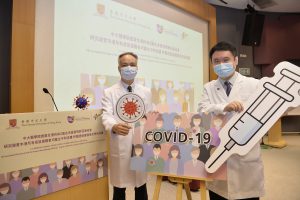
A COVID-19 hidden infection study conducted by CU Medicine has estimated that about 20,000 people at most in Hong Kong were infected with the virus but unidentified. Another study, which investigated the two COVID-19 vaccines available in the territory confirmed all participants who had received two doses of vaccines successfully developed neutralising antibody, meaning the vaccines are effective to provide protection.
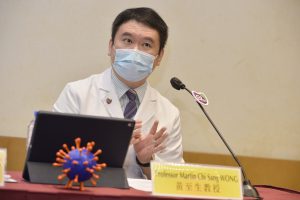
Professor Martin Chi Sang WONG, Professor of the Jockey Club School of Public Health and Primary Care at CU Medicine says the ratio of confirmed and hidden COVID-19 cases is approximately 1:2 which is a very low proportion compared to overseas data. This proved Hong Kong’s containment and contact tracing measures are effective.


